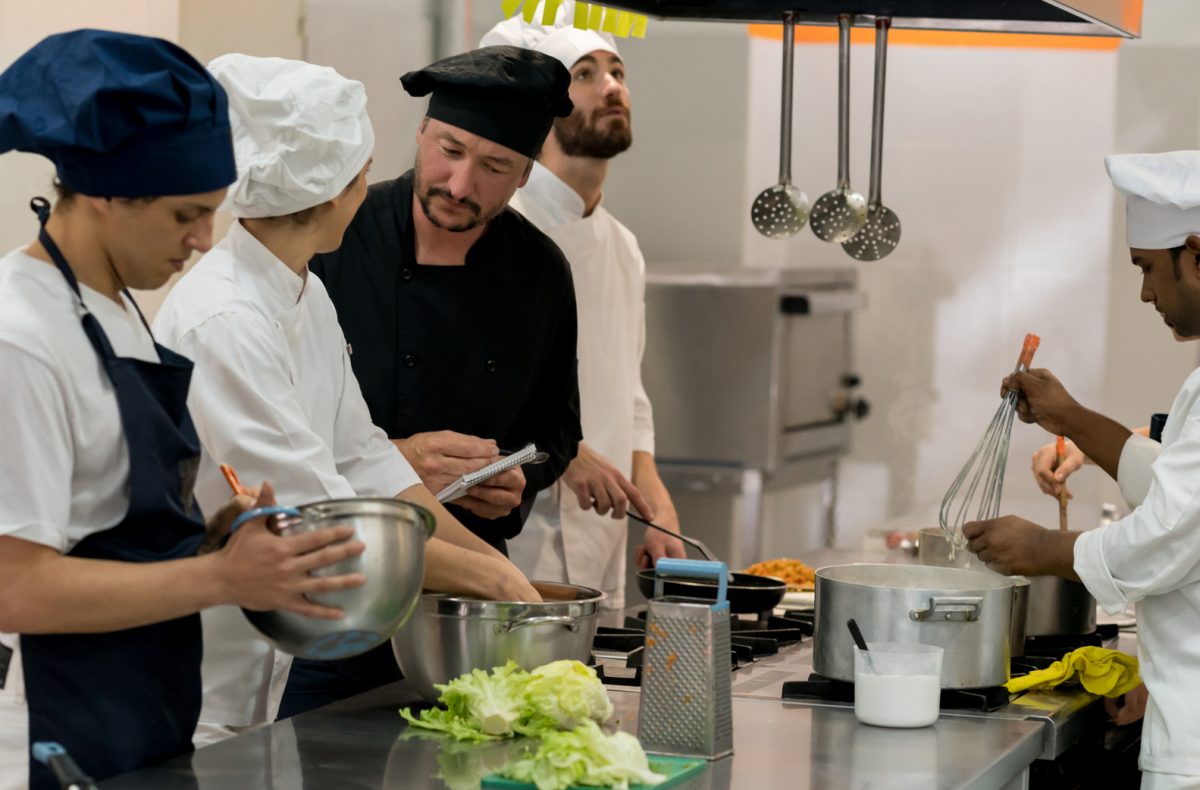Good food jobs are not just about cooking; they are about passion, creativity, and dedication to crafting culinary experiences that resonate with people's lives. Whether you're a seasoned chef or just starting your journey in the culinary world, the opportunities in the food industry are vast and varied. From working in prestigious restaurants to exploring niche areas like food blogging or food styling, the culinary world offers something for everyone.
The demand for skilled professionals in the food industry continues to grow as people increasingly value high-quality dining experiences. This trend has created a surge in good food jobs that go beyond traditional roles in kitchens. If you're looking for a career that allows you to express your creativity while also providing financial stability, the culinary field could be the perfect fit for you.
In this article, we will explore various aspects of good food jobs, including the types of roles available, the skills required, and the potential for growth in the industry. Whether you're interested in becoming a chef, a food scientist, or even a food entrepreneur, this guide will provide you with valuable insights to help you make an informed decision about your career path.
Read also:Danielle Jenkins A Comprehensive Guide To Her Life Career And Influence
Table of Contents:
- Introduction to Good Food Jobs
- Types of Good Food Jobs
- Skills Required for Good Food Jobs
- Career Growth and Opportunities
- Salaries and Benefits
- Education and Training
- Industry Trends
- Challenges in the Culinary Industry
- Tips for Success
- Conclusion
Introduction to Good Food Jobs
Good food jobs encompass a wide range of roles within the culinary industry, each requiring unique skills and offering distinct opportunities for growth. From chefs and sous chefs to pastry artists and food scientists, the culinary world is a vibrant tapestry of professions that cater to diverse interests and talents. Understanding the nuances of these roles is essential for anyone considering a career in the food industry.
Why Choose a Career in the Culinary Industry?
One of the most compelling reasons to pursue good food jobs is the opportunity to work in a dynamic and ever-evolving field. The culinary industry is not only about cooking; it's about creating memorable experiences for people. With the rise of food tourism and the increasing importance of sustainable practices, the demand for skilled culinary professionals continues to grow.
Additionally, the culinary industry offers a sense of community and collaboration. Chefs and culinary professionals often work together to innovate and push the boundaries of traditional cooking techniques, leading to exciting new developments in the field.
Types of Good Food Jobs
The culinary industry offers a diverse array of good food jobs, each with its own set of responsibilities and requirements. Below are some of the most popular roles:
Chef Roles
- Executive Chef: Oversees all kitchen operations, including menu planning and staff management.
- Sous Chef: Acts as the second-in-command in the kitchen, assisting the executive chef in daily operations.
- Pastry Chef: Specializes in creating desserts, pastries, and baked goods.
Non-Chef Roles
- Food Scientist: Researches and develops new food products and processes.
- Food Stylist: Prepares food for photography or videography, often working with media companies.
- Food Blogger: Shares culinary experiences and recipes with a global audience through digital platforms.
Skills Required for Good Food Jobs
Success in good food jobs requires a combination of technical skills, creativity, and interpersonal abilities. Below are some key skills that are essential for culinary professionals:
Read also:Why Axis Chicago Hotel Stands Out In The Heart Of The Windy City
Culinary Skills
- Proficiency in cooking techniques such as grilling, baking, and sautéing.
- Knowledge of food safety and sanitation practices.
- Ability to create visually appealing and delicious dishes.
Soft Skills
- Strong communication and teamwork abilities.
- Time management and organizational skills.
- Attention to detail and a commitment to quality.
Career Growth and Opportunities
The culinary industry offers numerous opportunities for career growth and advancement. Many professionals start in entry-level positions and work their way up to more senior roles over time. For example, a line cook may progress to become a sous chef or even an executive chef with experience and dedication.
Entrepreneurial Opportunities
For those with an entrepreneurial spirit, the culinary industry provides ample opportunities to start your own business. Whether it's opening a restaurant, launching a food truck, or creating a line of gourmet products, the possibilities are endless. According to a report by the National Restaurant Association, the foodservice industry is projected to grow significantly in the coming years, creating more opportunities for entrepreneurs.
Salaries and Benefits
Salaries in good food jobs can vary widely depending on the role, location, and level of experience. On average, executive chefs earn between $50,000 and $90,000 per year, while sous chefs typically earn between $30,000 and $60,000 annually. Food scientists and food bloggers may also enjoy competitive salaries, depending on their level of expertise and the demand for their services.
Additional Benefits
- Health insurance and retirement plans for employees of large restaurants or corporations.
- Opportunities for travel and exposure to different cuisines.
- Networking opportunities with other professionals in the industry.
Education and Training
While formal education is not always required for good food jobs, it can provide a solid foundation for success in the culinary industry. Many aspiring chefs choose to attend culinary schools to learn the fundamentals of cooking and gain hands-on experience. Additionally, internships and apprenticeships offer valuable opportunities to learn from experienced professionals in real-world settings.
Culinary Programs
- Culinary arts programs at community colleges and universities.
- Specialized courses in areas such as food science or hospitality management.
Industry Trends
The culinary industry is constantly evolving, driven by changing consumer preferences and technological advancements. Some of the latest trends include:
Sustainability
More consumers are demanding sustainable and environmentally friendly food options. As a result, many restaurants and food companies are prioritizing local sourcing and reducing food waste.
Technology
Technology is playing an increasingly important role in the culinary industry, from online ordering systems to kitchen automation tools. Embracing these innovations can help businesses improve efficiency and enhance the customer experience.
Challenges in the Culinary Industry
While the culinary industry offers many exciting opportunities, it also presents several challenges. Long hours, high stress levels, and demanding work environments are common in many good food jobs. Additionally, the industry is highly competitive, making it essential for professionals to continuously develop their skills and stay up-to-date with the latest trends.
Work-Life Balance
Striking a balance between work and personal life can be difficult in the culinary industry, especially for those in high-pressure roles like executive chefs. However, many professionals find ways to manage their time effectively and prioritize self-care to avoid burnout.
Tips for Success
Here are some tips for succeeding in good food jobs:
- Stay passionate about your work and continuously seek opportunities to learn and grow.
- Build a strong network of peers and mentors who can offer guidance and support.
- Embrace innovation and be open to trying new techniques and approaches.
Conclusion
Good food jobs offer a rewarding career path for those who are passionate about cooking, creativity, and innovation. Whether you're interested in becoming a chef, a food scientist, or a food entrepreneur, the culinary industry has something to offer everyone. By developing the necessary skills, staying informed about industry trends, and embracing challenges with a positive attitude, you can achieve success in this dynamic and exciting field.
We encourage you to take the first step toward your culinary career by exploring the various roles and opportunities available in the industry. Share your thoughts and experiences in the comments below, and don't forget to check out our other articles for more insights into the world of good food jobs.

